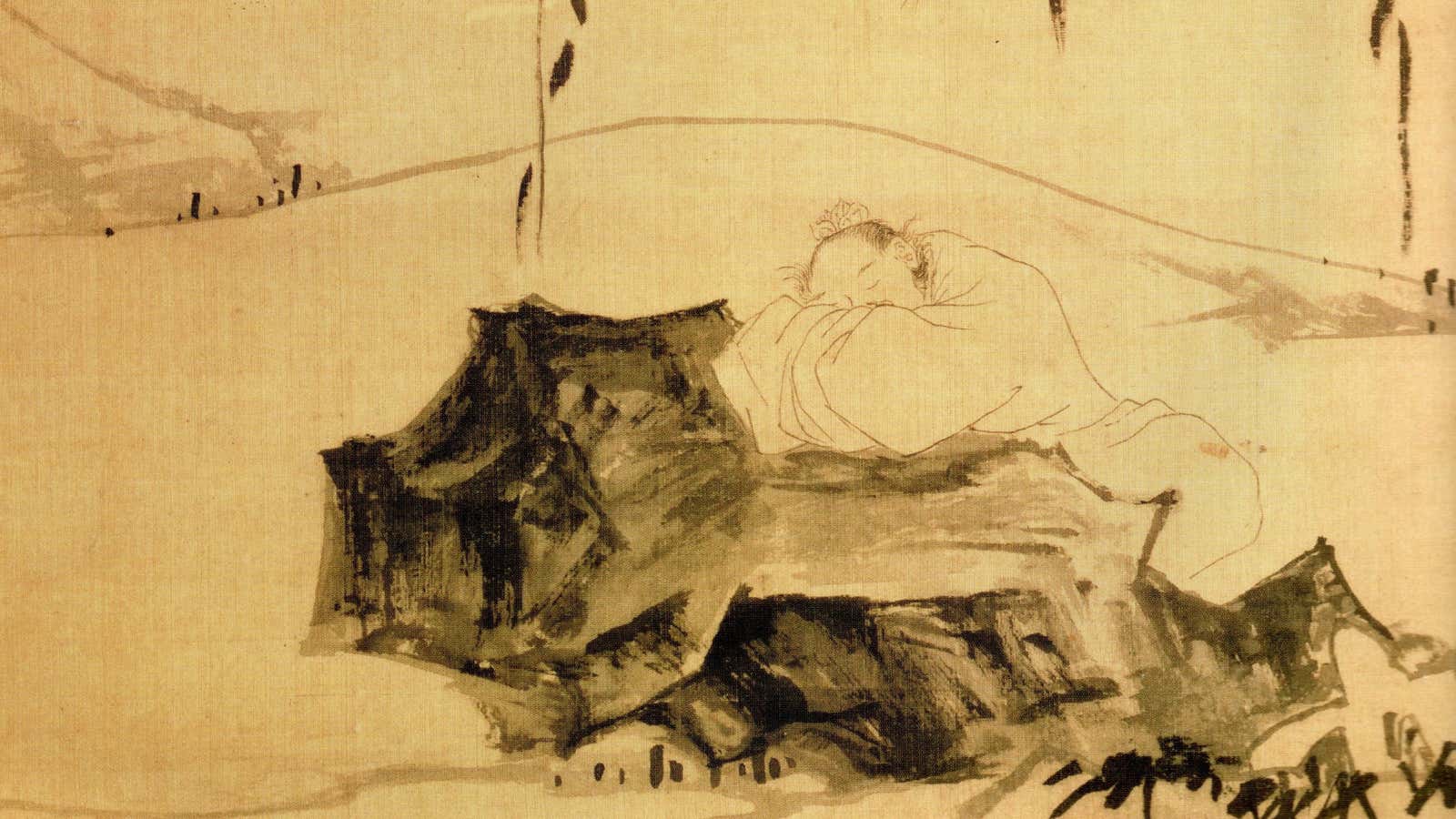Recently, I started hanging out with a group of friends who seem intimidatingly on top of things. They respond to their emails—even non-urgent ones—politely and punctually, they freeze leftovers in neatly labeled Tupperware that they never forget about, and they sort their mail into orderly files, daily. Every chore and administrative task is completed to perfection, leading to lives that appeared to me to be organized, efficient, and incredibly boring.
Though they seem quite happy, I’ve taken their dutiful lifestyle as a form of anti-inspiration, a reminder of why I should embrace my unopened mail, unwieldy to-do list, and distinctly un-Marie-Kondo-ed drawers. Total organization, I realized, requires devoting one’s entire life to structure and responsibilities. My moderate amount of mess is a token of the hours spent reading in the park, traveling with friends, or staying out very, very late. Messiness means that I’m living, at least a little.
This lackadaisical approach isn’t simply self-indulgence. The notion of embracing life by rejecting order is grounded in a long history of philosophical thought. The Chinese philosopher Zhuangzi wrote extensively, in the 4th century BC, about the importance of letting go. “He thinks humans have a built-in desire to control everything, to cut themselves off from things to protect themselves,” says Edward Slingerland, professor of Asian studies at the University of British Columbia and author of Trying not to Try: The Art and Science of Spontaneity. “If you can figure out how to shut that tendency down and open yourself up, then the world will carry you along.”
According to Slingerland, the central spiritual goal of Zhuangzi’s Taoist philosophy—Zhuangzi is the author of an eponymous book of stories and anecdotes that are core to Taoism—is “making your mind empty or tenuous. He sometimes talks about fasting the mind.”
Zhuangzi makes the crucial point that a regimented, well-organized life doesn’t simply reflect a sense of duty, but a desire to control personal circumstances—which, to Zhuangzi, is a negative. If we invest sensibly and have zeroed inboxes and clean houses, then we can kid ourselves that our careers will progress smoothly and we won’t be rocked by unexpected twists. As Slingerland highlights in his book, Zhuangzi observed a widespread societal obsession with perfunctory chores more than two millennia ago:
They are consumed with anxiety over trivial matters but remain arrogantly oblivious to the things truly worth fearing…. Their gradual decline is like autumn fading into winter—this is how they dwindle day by day. They drown in what they do—you cannot make them turn back. They begin to suffocate, as though sealed up in a box—this is how they decline into senility. And as their minds approach death, nothing can cause them to turn back toward the light.
To be free of this mundanity, we can’t complete every task and then get on with the business of enjoying life. Instead, we need to stop trying; we need to let go and be open to our surroundings. “When you’re in your normal state of mind, you’re not seeing the world that’s really there, you’re seeing your idea of it and your fears projected onto it,” says Slingerland. “If you can let go of those things you can see the world as it really is and that lets you respond more effectively and happily to things around you.”
There’s no need to give up on order entirely. While it’s healthy to accept some disarray, embracing it entirely can be harmful both to yourself and others, and can be another way of eschewing meaning in life. As a journalist, I have to accept that I will never have a neat list of stories to sort through. The news is constantly in flux, other publications report on my ideas, and the tide of public conversation is forever shifting. If I rejected all structure though, and ignored deadlines, then I’d never write at all. Similarly, there’s no need to sort through mail the second it arrives—but at some point, the bills have to be paid. There’s a balance between obsessing over organization and descending into chaos; quite how to navigate this is far from clear-cut, but Zhuangzi believed that, if we stop trying, our surroundings can be an effective guide.
Of course, trying not to try is an impossible paradox. In a key chapter by Zhuangzi, Wandering in Selfless Ease, the philosopher suggests both humor and meditation can help break us free from small-minded convention. Slingerland also recommends engaging with your body through physical activities such as tennis or gardening. Rejecting perfect structure to allow some disarray can be difficult, and even scary. But it’s also the only way to have a meaningful existence. Life is chaotic and turbulent and messy. Trying to be on top of things, all the time, isn’t a way of managing life, but avoiding it.
